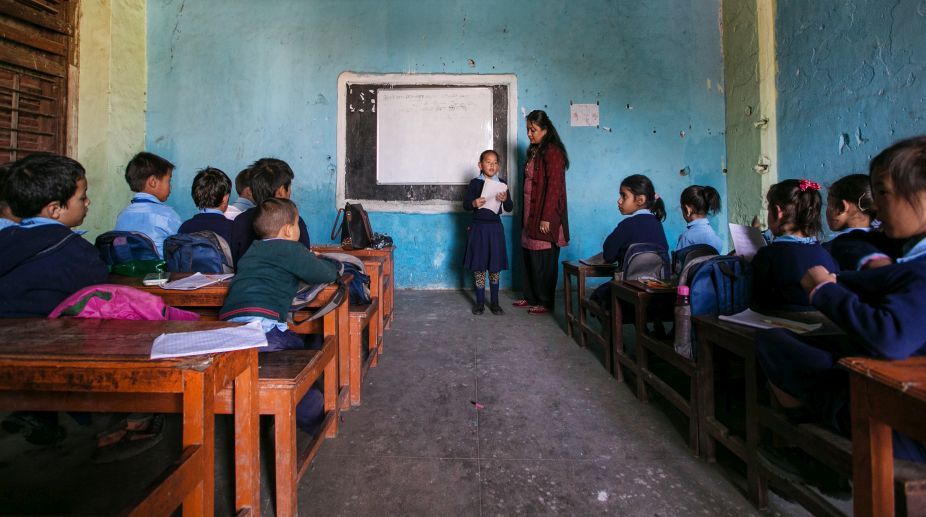Jharkhand unveils ambitious plans for education, science and innovation
The Jharkhand government has unveiled ambitious projects aimed at propelling the state into a new era of education, science, and innovation.

(Photo: Getty Images)
The Right to Education Act, which has not been as effective as initially envisaged in 2010, might well flounder on the rock of teaching ~ a cruel irony of what was once packaged as a fundamental entitlement.
If the findings of a survey commissioned by the Union HRD ministry are an index, no fewer than 45,000 teachers throughout the country have not studied beyond the Higher Secondary level. The astonishing, almost incredible, revelation reinforces the dire imperative that it is the teachers who need to be taught and trained before they are in a position to convey their instruction to the “taught”.
Advertisement
The fineprint of the survey is explicit in the fact that the teachers were appointed on the “strength” of the Class 10 exam. It isn’t only West Bengal where teaching, most particularly at the primary level, has been hampered by the lack of adequate training and the recurrent state-sponsored disaster called the Teachers’ Eligibility Test.
Advertisement
The malaise of under-qualified teachers, inducted across the country to execute the RTE Act, is now virtually endemic. The fundamental certitude has been almost consciously violated, specifically the stipulation that a prospective teacher must have scored 50 per cent marks in the Class 12 exam and also be equipped with a Diploma in Elementary Education, before he or she is eligible to teach children of Class one to five.
As it turns out, they can boast of neither, which is perhaps the worst of both worlds. Nearly 4 lakh teachers, from Bihar and Madhya Pradesh in the main, have failed to measure up to the benchmark ~ 50 per cent marks in Class 12. Statistics can be mind-boggling. An estimated 45,000 teachers never cleared the Class 12 exam; they were appointed before 2010 on the basis of their performance in the Class 10 exam. Even after seven years, they are yet to enhance their eligibility criteria to the stipulated level.
On closer reflection, the lapse is not merely of the teachers, but the appointing authority no less. The primary disaster across the states needs urgently to be addressed, as urgently as whether the examination system can be abolished up to Class 8 ~ in itself a vacuous proposal. If the teacher lacks the qualification to teach, the system makes a mockery of exams.
The perceived benefits of the RTE Act have been neutralised in the overriding anxiety to check the pathetic student-teacher ratio. The qualification of the teacher has thus been accorded short shrift… and tragically at the cost of purportedly free and compulsory education.
The survey report on unqualified teachers lends a new dimension to the problems that plague the primary segment and school education generally. It will not be easy to escape the conclusion that the adult has short changed the child.
Advertisement